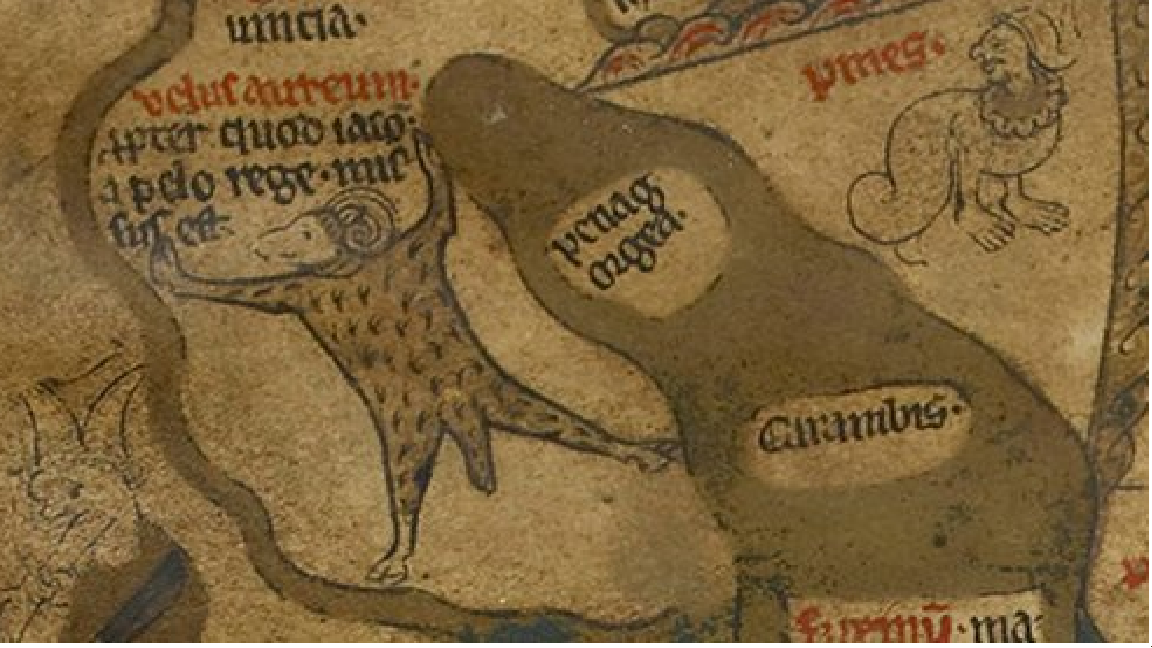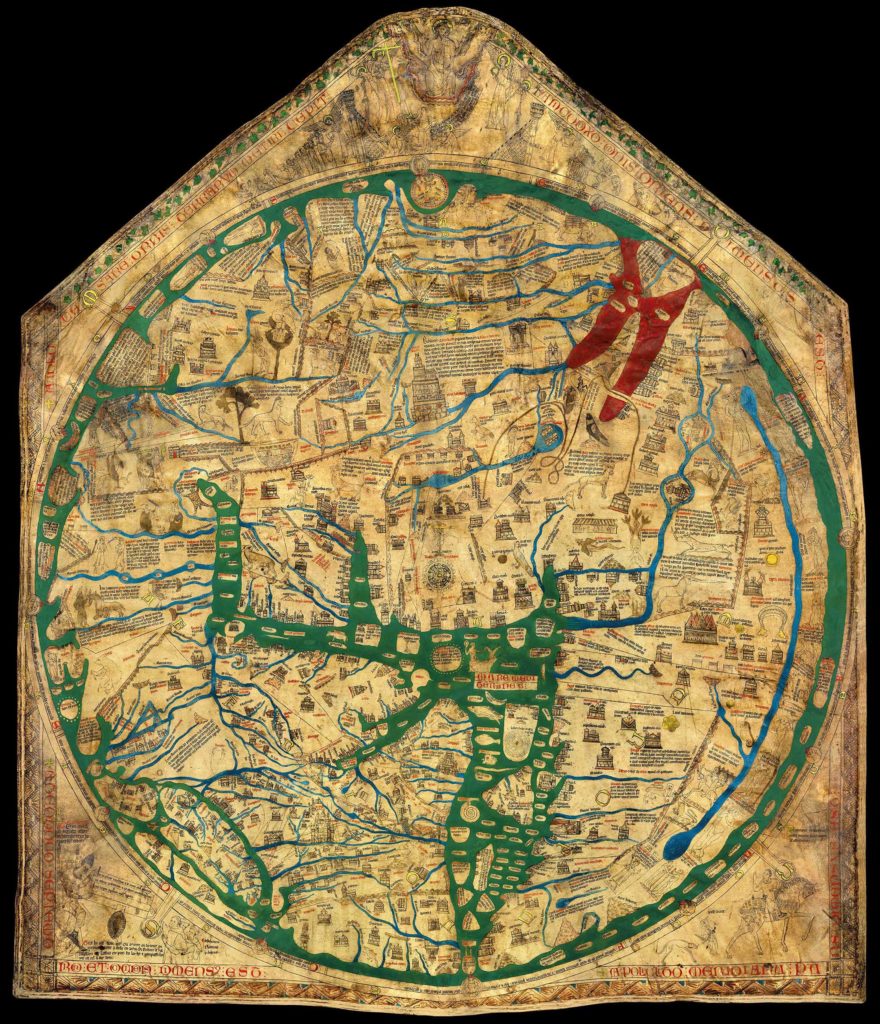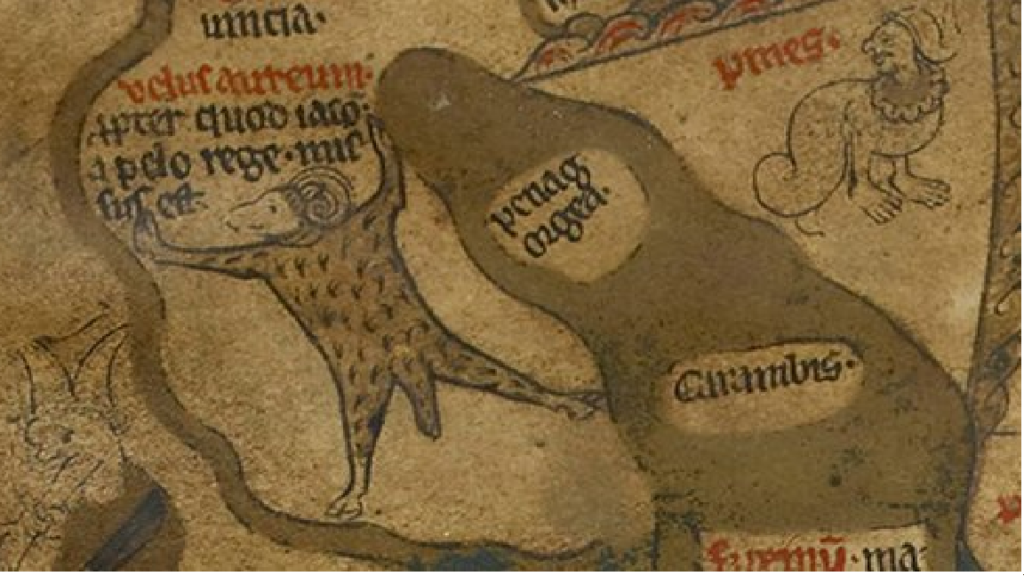
Posted by Zoe Cunningham
8 May 2017I recently participated in a campus visit for Year 9 and 10 school pupils as part of Exeter’s Widening Participation scheme to encourage a larger pool of students to consider a degree in the humanities. I offered the pupils two workshops in historical studies, focusing on the medieval and early modern worlds. I selected these topics, partly, because they represented my own areas of expertise and, partly, because I wanted to provide a (hopefully, welcome!) alternative to the predominance of modern history in the current school curriculum. The experience of planning and leading the workshops was very illuminating and prompted some reflections on my own attitudes to the differences between education at school and university, and the influence which these differences have on the responses of students to the work we assign them.
‘Preserving from decay the remembrance of what men have done’…..so wrote Herodotus in his introduction for the Histories of the Greco-Persian wars in the 5th century BC. This description of the historian’s trade, fortified by Leopold von Ranke’s 19th-century insistence on ‘what really happened,’ remained current until at least the early 20th century and the explosion of the Whig tradition by Herbert Butterfield. Despite this, national and local identities have often depended upon the Rankean ‘scientific’ and teleological interpretation of the past, particularly because it is amenable to narratives of popular, public histories. In contrast, there is the approach taken by the pupils in my recent workshop, who happily observed that ‘history is written by the victors!’ Here effective analysis of events and patterns is done through thoughtful consideration of the position and experiences of the characters who appear in the records. The scholarly version of this second approach, which engages with the diverse perspectives of class, gender and race, is bread and butter for academic historians, but it is often perceived to be in conflict with the ideal of a collective community, which seems to require the support of Ranke’s model of historiography. The black and white shading of these positions are, of course, illusions; the pupils in the workshop were quite aware of the difficulties in examining evidence which is biased or incomplete, and of all disciplines in the humanities history is arguably the most resistant to the stereotype of postmodernist relativism. Nevertheless, even if the distance between the models of history taught in secondary and tertiary education is not so wide, many students seem intimidated by the transition. In this post I would like to discuss this issue from the perspective of working with pupils who were still in school. In brief, reflecting on this change is as useful for tutors as it is for potential students!
One of the difficulties faced by new undergraduates is the frequent requirement for them to recognise and reject some of their preconceived ideas about their chosen subject. The purpose of this demand should expand and invigorate their approach to a discipline, but it can also cause confusion and lead them to question their own abilities… A healthy sense of bamboozlement is, of course, vital for a good life (as I, and others, tell myself in most some situations). Indeed, for postgraduate research onwards ‘feeling stupid’ is, or should be, a reminder that we are scaling the peaks we once viewed from the base camps in which we produced our undergraduate dissertations. Primary and, especially, secondary education is so focussed on the linear progress of attainment, however, that some students can become so discouraged by the approach to history at university that changing programmes or dropping out entirely seem to be the best options for them. Of course, there are many valid reasons for making these choices, but it ought not to be because of premature assumptions they are not good enough to complete the challenges we set them. The Widening Participation initiative in the College of Humanities seeks to manage the leap across this chasm for students entering undergraduate programmes in its departments, especially if they come from underrepresented groups. The opportunities offered by the College include campus visits, in which pupils receive a tour of the university and attend workshops led by PhD students in the subjects that they might be interested in studying for a degree here or elsewhere.

Designing any seminar or workshop is, of course, challenging and it is especially so when the participants differ from your usual audience. However, the potential for providing an influential experience was an effective motivation; I know myself that early impressions can be very formative… although I decided, wisely I think, to eschew simply screening The 300 Spartans or A Bridge Too Far! I doubt that Richard Egan’s recitation of his lines performance would have instilled a lasting affinity for the concept of the past not already achieved by Horrible Histories! I led the group of 19 pupils in two sessions, which I divided into discussion of medieval and Early Modern studies (no Nazis!). I began the first session by inducting the pupils into one of the finest traditions of university education: a quiz (including chocolate for the winners). I asked teams of pupils to find a list of images amongst the illustrations on, rather natty, A3 copies of the Mappa Mundi. It was produced c. 1300 and is the largest surviving document of this type and currently resides at Hereford Cathedral. The map, publicised by the cathedral’s wonderful website, is a splendid resource for offering newbies a vivid depiction of the medieval imagination…. The illustration of the Golden Fleece is especially delightful, but all of the images introduce a cultural landscape thankfully removed from the standard syllabus of the Battle of Hastings and Magna Carta. These events are, of course, important landmarks in English and European history, but this was an opportunity to provide the pupils with experience of topics which were not selected because of relevance to their national identity. The first group to find the emblems were suitably rewarded with the aforementioned prizes… Although this was not entirely representative of a university seminar, it did try to explore a different aspect of the past and the students seemed to appreciate it (or, at least, the chocolate!).

I had hoped to devote most of the workshop to discussing a ‘source-book’ of documents on medieval medicine (continuing my focus on the more graphic features of the period!), but the interest of the pupils and teachers inclined towards discussing the general practice of studying history at university: the structure of the degree, the choice of modules, the format of lectures and seminars, the criteria for assessment… These questions would perhaps not inspire them to specialise in the Middle Ages, but it was a useful primer for the general study of history. It was also, as most teaching is, very insightful for me; many aspects of academia that I take for granted (degree classifications etc) were unfamiliar to the students. Holly and Kate, the undergraduate historians who were supporting the school for the entire visit, were probably more useful for this! We did eventually turn to discussion of a medieval source: the rules for doctors in Frederick II’s Constitutions of Melfi (1231). Identifying sources which represented the experience of a university seminar, but were accessible for a mixed group of year 9 and year 10 pupils proved difficult. Although they were willing and had some good ideas, the difference between these stages of education was apparent in the reaction of the different year groups to the material. This was not, I think, because the source was too esoteric or difficult to understand of itself, but because of general intimidation by the perceived complexities of it. This was also apparent in their reaction to the Early Modern texts in the second session: records from the trial of Charles I (1649) and accounts of the Battle of Lexington (1775) by British and American correspondents. Although initially surprised by this reticence, I realised that it was little different from the feelings many of our undergraduates display and, after some prompting from myself and the teacher, the pupils managed to summarise the principal points of both of these sources.
I was genuinely excited by this opportunity to teach school pupils, especially because the brief permitted me to use material so different from that on the usual secondary school syllabi! While I hope it was useful for the pupils, it was definitely a fascinating and informative day for me. It can often be frustrating for tutors when undergraduates have difficulty grasping the content or implications of a particular source, especially when, after so much time above the clouds, if nowhere near the summit (!), it can be difficult for us to see these difficulties ourselves.This workshop reminded me of just how much basic understanding and intellectual engagement I expect from my students – and how daunting it might be to deal with such unfamiliar material. It is something I will bear in mind when teaching classes in the future when, perhaps, one of these pupils might become one of these students!
Zoe Cunningham is a PhD student in the School of Law, affiliated to the Centre of Medieval Studies